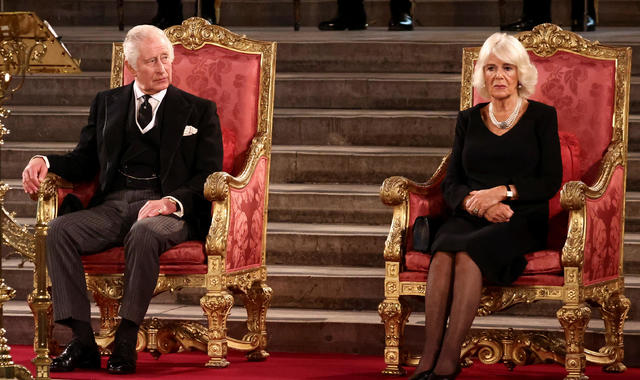King Charles III is reportedly considering a significant change in the law governing the appointment of councillors of state, a move that could have far-reaching implications for the royal family.
Under the current 1937 Regency Act, non-working royals such as Prince Harry, Prince Andrew, and Princess Beatrice hold key roles as councillors of state, who can step in for the monarch in official duties when needed.
However, King Charles III is said to be seeking an amendment to the law that would restrict these positions to working members of the royal family, potentially leading to the removal of Andrew, Harry, and Beatrice from their roles.
The proposed change comes as a response to the perceived incongruity of having non-working royals in positions that entail carrying out constitutional duties.
Several commentators have urged Buckingham Palace to push for a revision of the law, which can only be accomplished through parliamentary action.
King Charles III is expected to act swiftly to initiate the necessary steps to implement the amendment, a move that would likely see working royals like Prince Edward and Princess Anne taking on the roles vacated by Andrew, Harry, and Beatrice.
Following his accession to the throne, King Charles III emphasized a reign characterized by transparency and affection, with his wife, Queen Camilla, playing a prominent role by his side.
He expressed gratitude for Camilla’s unwavering support throughout their marriage, acknowledging her as his queen consort in light of her dedicated public service.
The couple’s public display of unity and strength was evident during a walkabout outside Buckingham Palace following the passing of Queen Elizabeth II, where they interacted warmly with well-wishers despite their grief.
The relationship between King Charles III and Queen Camilla has endured various challenges over the years, including scandals, divorces, and public scrutiny.
While there are conflicting accounts of their initial meeting, with some suggesting a bold introduction by Camilla at a polo match, others claim they were introduced through mutual connections.
Regardless of the circumstances, their bond has remained steadfast, evolving into a partnership marked by mutual respect and enduring love.
As the royal family navigates these changes, the potential reshuffling of key roles reflects King Charles III’s commitment to modernizing and streamlining the monarchy’s operations.
By aligning the appointment of councillors of state with active royal engagements, the proposed amendment aims to ensure a more efficient and effective governance structure within the royal household.
With the support of Queen Camilla and other working royals, King Charles III is poised to lead the monarchy into a new era of openness and adaptability.
Related Stories

